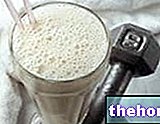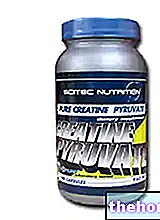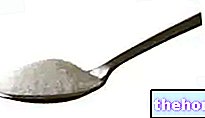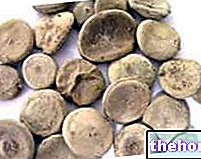What is Tyrosine
Tyrosine is a very important amino acid for the human organism; its food intake is not essential but can become so in conditions of phenylalanine deficiency.

Features and potential benefits
Tyrosine is the starting amino acid for the synthesis of important neurotransmitters, such as dopamine, adrenaline and noradrenaline. These last two substances are very important for the process of adaptation to intense and sudden psychophysical stress. For this reason adaptogenic properties are ascribed to tyrosine, useful for improving the body's response to stress of various kinds. It is no coincidence that this amino acid was taken in high doses by fighter-bomber pilots engaged in the Falklands war, in order to stay awake longer. for a long time and raise the attention threshold.
Since tyrosine is a precursor to dopamine and norepinephrine, whose levels tend to be low in depressed people, supplementation of this amino acid has been proposed as an adjunct for the treatment of minor depressive episodes.
Tyrosine is also necessary for the synthesis of melanin, the skin pigment responsible for tanning and skin color, but also for that of the eyes and hair. It also participates in the synthesis of various hormones, such as thyroid ones, as well as intervening in the protein synthesis and thus re-enter most of the protein structures of the organism.
Normally recommended therapeutic or supplementary doses are 500-1000 mg of L-tyrosine, to be taken three times a day before main meals. Dosages in the order of 150 mg per kg of body weight are recommended to improve wakefulness by reducing the need for sleep.
Tyrosine deficiency
Tyrosine deficiencies are quite rare and are mostly associated with calorie-protein malnutrition. Low levels of this amino acid have been associated with hypotension, low body temperature and hypothyroidism.

Excess of tyrosine
Excessive tyrosine intake has been linked to eye damage, growth retardation and decreased appetite. However, tyrosine is generally well tolerated and only a small percentage of individuals have complained of nausea, headache, fatigue, heartburn and joint pain after taking it.
Tyrosine in food
Among the tyrosine-bearing foods we remember soy products, fish, chicken, turkey, almonds, bananas, milk and its derivatives, sesame seeds, avocado and pumpkin seeds.
Precautions for use
Caution is advised if you wish to take tyrosine supplements in the presence of headaches and migraines, as the amino acid could exacerbate these disorders (by increasing tyramine synthesis). For the same reason, use in combination with drugs should be avoided. MAO inhibitors (risk of hypertensive crisis with heart damage); among these drugs we remember isocarboxazid, phenelzine, selegiline, moclobemide and tranylcypromine. Caution also in hyperthyroid subjects, suffering from Graves' disease or taking drugs against hypothyroidism such as thyroxine (euthyrox); finally, the assumption of tyrosine must be absolutely forbidden during the treatment with levodopa (an antiparkinsonian drug), given the competition for absorption in the intestine.
















.jpg)











